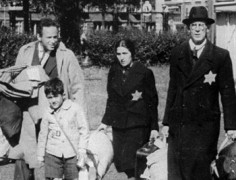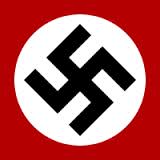People in Nazi-occupied Holland generally greeted the maltreatment of Jews with indignation, but local authorities cooperated with the Germans in the persecution of Jews in the Netherlands, says a Dutch historian.
Wichert ten Have, chair of the Academic Working Group at the International Holocaust Remembrance Alliance in Amsterdam, made these comments in a lecture in Toronto on Nov. 7 during Holocaust Education Week.

In the autumn of 1940 and the winter of 1941, protests and strikes condemning Germany’s antisemitic policy broke out in Holland, but they were ruthlessly crushed by German forces, demoralizing and intimidating the Dutch population, he said.
As a result, the suffering that Dutch Jews endured was met largely with indifference, added ten Have, the author of The Persecution of the Jews in the Netherlands, published in 2012.
In a sharp critique of Holland’s wartime Jewish leadership, he noted that the Nazi-appointed Jewish Council was completely under Germany’s control and influence, and that Jewish leaders behaved compliantly rather than defiantly, making it easier for the Nazis to marginalize, persecute and deport Jews to their deaths in extermination camps in Poland.

Comparing the fatality rate of Jews under Nazi occupation in France, Belgium and Holland, ten Have said that while 25 percent of Jews in France were deported and killed, the comparative figure in Belgium and Holland was respectively 40 percent and 75 percent.
Of 140,000 Jews in pre-war Holland, 107,000 perished, he said, calling that figure “shocking.”
Suggesting that Dutch Jews were psychologically unprepared for what happened during the war, he said they had grown accustomed to the fact that Holland had been a beacon of relative tolerance and a haven for persecuted Jews since the 16th century.
Antisemitic currents ran through Dutch society, with some occupations closed to Jews. However, Jews were accepted as “normal citizens” and, compared to other countries, Jews were well off in Holland, he said.
Ten Have debunked the claim, popularized by Holland’s elite after World War II, that most Dutch people joined the resistance movement. In truth, only a small minority actively resisted the Nazis.
Closing on an optimistic note, ten Have observed that Dutch interest in the Holocaust in Holland has been growing. “And that’s good news to those concerned with Holocaust remembrance,” he said.
